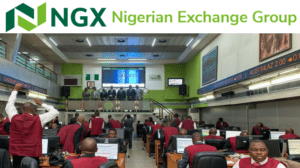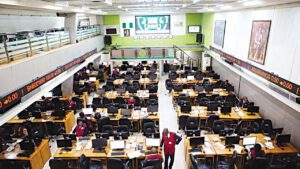Stockbrokers’ President, others reel out strategies to grow Nigeria’s GDP
It was a harvest of ideas at the weekend, when the President of Chartered Institute of Stockbrokers (CIS), Mr Oluwole Adeosun and other eminent professionals in the public and private sector, identified deployment of the Public Private Partnership (PPP) model and provision of liquidity under ease of doing business among others to enhance accelerated growth and development of the Nigerian Gross Domestic Product (GDP).
Besides, the Plateau State Governor, Mr Caleb Muftwang, who commended the Governing Council and Management of the Institute for the various professional suggestions to grow the Nigerian economy, reiterated his administration’s determination to utilize the capital market to develop infrastructure in the state, saying no nation can develop without a viable capital market
Addressing the participants at the 2023 Annual National Workshop of CIS in Abuja at the weekend , Adeosun lamented that the last record of Nigerian double-digit GDP growth was in 2002 when the indicator grew by 15.33 per cent.
According to him, much of the fundamentals of the country’s economy were built in the 1970s and 1980s.
Adeosun explained that adoption of public private partnership (PPP) model would boost economic growth and development and lift millions of Nigerians out of poverty.
“It has been established globally that one of the most effective routes towards achieving fast-paced economic growth, is the adoption of Public Private Partnership (PPP). While we accept that this has been tried in Nigeria to some extent, emphasis has not been as it should be. It is our conviction at the Institute that utilising the capital market optimally will significantly enhance the effectiveness of Public Private Partnership in accelerating the GDP growth in Nigeria.
“Our present infrastructure deficit is estimated at US 3 Trillion Dollars over the next 30 years, constituting 30 per cent of the GDP as against 70 per cent by other middle -income nations. This constitutes a set back which needs to be corrected. At CIS, we believe that with genuine concern, altruism, innovative ideas, patriotic zeal and political will on the part of the government, our economy will be set on the right footing,” Adeosun said.
The Chief Executive Officer, Economic Associates, Dr Ayo Teriba, who spoke on “Macro-Economic Policy Framework for Nigeria,” explained that government should address the issue of liquidity to tackle insecurity, rising inflation and other macro-economic vagaries affecting Nigeria.
“The basic economic problem in Nigeria is illiquidity. This is in form of fiscal illiquidity, forex illiquidity or systemic illiquidity . The dominant source of illiquidity are the challenges associated with exports and inability of Foreign Direct Investment (FDI) to thrive due to lack of enabling business environment . Growth is a consequence of liquidity. Countries must get liquidity right.
“Nigeria is rich in assets and should take advantage of assets to grow the economy rather than rely solely on revenue from taxation,” Teriba explained.
Speaking on “Managing Nigeria’s Sovereign Debt for Economic Stability,” Director General, Debt Management Office, Ms Patience Oniha, argued that tax revenue drive should remain one of the major sources of government revenue without prejudice to other avenues such as exports and FDI.
The President, Association of Capital Market Academics of Nigeria, Professor Uche Uwaleke, noted that effective implementation of the eight-point agenda of the current administration would create ease of doing business in Nigeria and drive investment.
With the Theme: “Leveraging the Capital Market to drive Public-Private Partnership (PPP) for effective National Economic Growth,” issues discussed at the Workshop included: “Capital Market Development in Nigeria,” “Harnessing Value from Collaboration With African Securities Exchanges,” “ESG Investing in Nigeria : Issues and Prospects,” “Capacity Building and Investor Education in Nigeria’s Securities Industry” and “Impact Reporting on Bond Issuances in the Nigerian Capital Market.”




